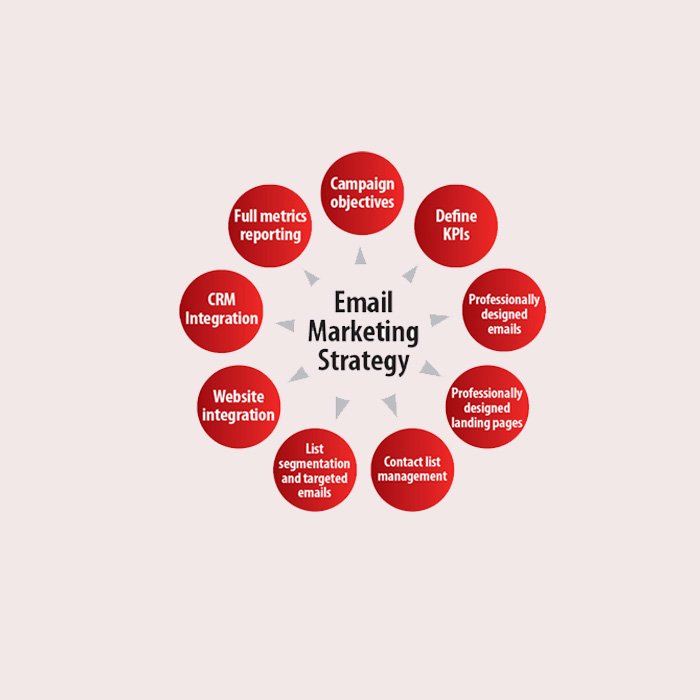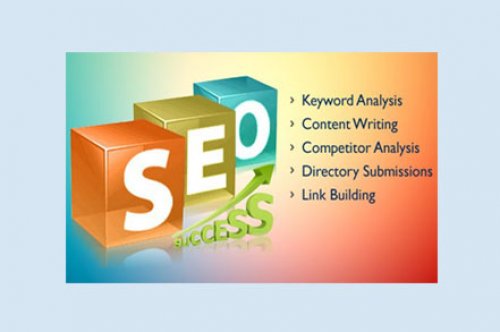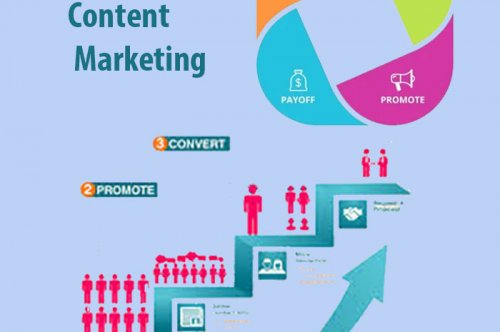Email Marketing Services

Email marketing is a primary marketing channel that uses bulk emails to promote your products or services to a list of subscribers via email. Think of it as a key part of your marketing automation strategy, keeping your leads and customers in the loop and excited about what you have in store for them.
- What is Email Marketing?
- What Are the Advantages of Email Marketing?
- What Are the Disadvantages of Email Marketing?
- How to Do Email Marketing Successfully: A 5 Step Guide
- 5 Biggest Email Marketing Challenges (And How to Solve Them)
- Frequently Asked Questions About Email Marketing (FAQs)
- Email Marketing Case Studies
What Are the Advantages of Email Marketing?
- For eCommerce businesses, email marketing lets you sell products, recover abandoned carts, and increase lifetime value.
- Small business owners can use email marketing to maintain brand awareness and build relationships over time.
- Email marketing is great for SaaS companies to turn subscribers into free trial users, and free trials into paying customers.
- Bloggers and publishers use email marketing to drive traffic to their websites and affiliate links, which means more revenue.
- Enterprise clients can scale their email marketing plan to reach thousands or even millions of customers at once.
There are many benefits of email marketing:
- People check their email a lot, up to 20 times a day.
- You own your email list and can email them whenever you’d like. This is unlike social media where algorithms control your reach and engagement.
- Emails can be personalized at scale.
- Email has an extremely high ROI (return on investment) of around 3600%. Calculate the ROI of email marketing and see for yourself.
- Email is 55 times more effective at customer acquisition than Facebook and Twitter put together.
- Shoppers who receive email marketing convert 3x more than those who don’t.
While the case for email is strong, there are a few downsides. I want to make sure you have a full understanding of email marketing, so I’ll go over these disadvantages next.
What Are the Disadvantages of Email Marketing?
Email marketing, despite its effectiveness, has several disadvantages:
- Spam: Emails marked as spam can lower open rates over time and hurt deliverability. Learn how to prevent emails from going to spam.
- Inbox overwhelm: Marketing emails can get lost in an inbox filled with marketing emails. Segment your list by their engagement, and maintain a consistent by not excessive mailing schedule to combat this.
- Design challenges: Emails that display inconsistently across devices or email clients can hurt the reader’s experience. Using your ESP’s responsive templates will usually prevent these challenges. Services like Litmus Email Tester can show how your emails perform on various devices and clients, too.
- Regulations and compliance: Privacy regulations like GDPR, CAN-SPAM, and CCPA require ongoing attention to avoid legal conflicts. Double opt-ins, and unsubscribe links in every email will help you comply with these regulations.
- List maintenance: Inactive and unengaged subscribers must be regularly removed from email lists.
- Cost: Email marketing service providers typically charge by subscriber, which means your cost increase as your list grows. Maintaining your list, and engaging with subscribers will help ensure every subscriber is worth your investment.
How to Do Email Marketing Successfully: A 5-Step Guide
There are five things I want you to do when you’re just getting started with email marketing:
- Define Your Goals
- Choose an Email Service Provider
- Create an Optin Form to Build Your Email List
- Select the Type of Email Marketing Campaign To Send
- Track Email Marketing Metrics
Step 1: Define Your Goals
Before you spend money on an email marketing tool or type out that first email, you must identify your goals. Ask yourself:
- What do I want these subscribers to ultimately do after joining my list?
- What will convince them to join your list?
- What will you share on a regular basis to keep them interested?
- What will convince them to buy what you’re selling?
To write effective marketing emails, you need to know who you’re talking to. Are you reaching out to loyal customers or trying to win over new prospects? Understanding your audience’s age, location, interests, and buying habits will affect how you approach them in your messages. Once you know your target audience, tailor your message to them.
With these goals in mind, you can choose the tools you’ll use to implement your strategy.
Step 2: Choose an Email Service Provider
The first thing you need is an email service provider (ESP). An ESP will provide the tools you need to create, send, and manage email campaigns to your audience. Choosing the right email marketing software with the features you need can keep costs manageable. I’ll go over some cost-effective options for email marketing software below:







